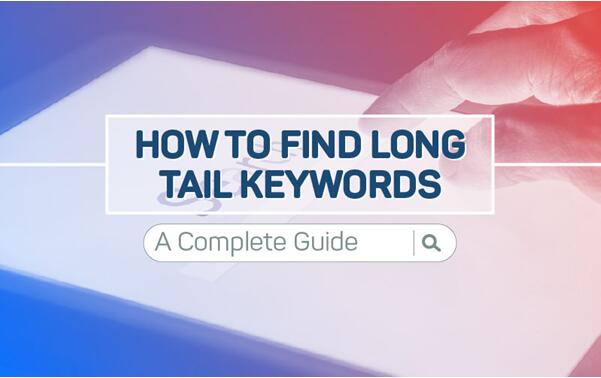
The writing has been on the wall in favor of long-tail keywords for a long time. In fact, I have been urging businesses to go for the long-tail keywords, ditching the highly competitive keyword phrases.
Just imagine, when you got to compete with hundreds of competitors over almost the same keyword phrases, you can’t be guaranteed for higher ranking even after putting all you got. Instead, going with less competitive but specific long-tail keywords presents an ideal opportunity to target the right audience and not getting lost in between the fierce competition.
Interestingly, agencies offering SEO services in Dubai and other places also get tired of convincing the clients of going with long-tail keywords, which slowly but surely is now making changing the SEO content strategy. Long-tail keywords aren’t just easy to be ranked in search engine ranking pages (SERPs), but they are also much more targeted and received by an audience who is more prone to convert, thus giving you a better chance to close the deal.
What are long-tail keywords?
In simplest terms, the long-tail keywords represent low search volume “read unpopular” but highly-targeted search queries. As said above, these highly-focused search queries got better conversion rates.
Maven Digital Myth Buster: shorter search queries don’t get higher search volumes as compared to longer queries.
One of the reasons why long-tail keywords could be great for your business is because not many businesses compete on them, due to the above mentioned wrong myth. In reality, today most people search longer phrases in Google search engine and as we said, the traffic from long-tail keywords is more likely to convert than from shorter search queries.
For instance, traffic landing from “SEO services in Dubai” is less likely to convert than “affordable local SEO services in Dubai”. The later search query will be made by a user who is desperately looking for affordable and local SEO services, which give businesses an ideal opportunity to close the deal.
How to find long-tail keywords?
Ok, now that you understand what do we mean by long-tail keywords and why these should be an integral part of your SEO content strategy, you must be wondering where to find the right long-tail keywords?
Well, obviously the best place to start is to make a search query on Google for “how to find long-tail keyword?”, which has most definitely lead you to this page.
So, let’s see some of the ways you can browse to find the best long-tail keywords for your business.
1. Google Suggest
Just like Google’s keyword research tool is great to find shorter keyword queries, Google Suggestions is a great platform to filter various long-tail keyword variations. All you would need to do is to type some core keywords into the search bod and see what’s coming in down below.
That’s because every suggestion is a phrase used by users as a search query. Yeah, you may get some not so humble suggestions as well like (can coronavirus spread by eating Chinese food), but then you can ignore these and move on to the other variations.
2. Google’s Related Searches
This works the same as Google Suggestions. All you need to do is to start typing a few core keywords in Google’s search bar and start reading the related searches appearing down. In fact, you can also scroll down to the bottom of the page to see some great organic long-tail keywords variations. In this case, you will also get some personalization variations as well as if you are in Dubai, you can expect terms like Dubai, UAE, Burj-Khalifa as modifiers.
3. Keyword research tools
Yeah sure, Google keyword research tool is great and you will find plenty of numbers and statistics using it, however, there is no harm but greater good if you decide to use multiple keyword research tools. In fact, if you are only relying on a single tool, you are actually losing out tons of possible variations for long-tail keywords. There are some great options you could use to come up with personalize and highly-relevant long-tail keywords variations, so make sure to not restrict your research to one tool.
4. Analytics Mining
Google Analytics is yet another medium that can help you to unveil various long-tail keywords variations that users are using to land to your website.
You can easily mine various keyword referrers to locate relevant and personalized long-tail keywords that are actually driving traffic to your website. For instance, last month we find out that a lot of traffic is landing on our website on the phrase “How to improve the conversion rate of the website”, however, we didn’t have any web page with that title. Guess what, we created one page and now we get loads of traffic from that one page.
So, essentially, when you start mining the website analytics, you get to see newer and better variations that the organic traffic is using to land on your page. All you need to do is to get these long-queries downloaded and scanned to get the best and most relevant long-tail keywords, which subsequently you can target into the content.
5. Search Query Reports Mining
If you use AdWords (PPC Campaign), the search query reports can be useful resources to mine for the most relevant and practical long-tail keywords. The search query reports generated for PPC campaigns essentially works on the same principle as your analytics, showing you tons of different queries used by users to land on your website.
What’s even better, in this case, is the fact that you get access to the complete data for PPC campaign reports, as compared to organic referrers which are somewhat limited. In search query reports, you also get to see which keywords have actually converted, so, it’s not just about the traffic but also about the conversion optimization.
6. Q&A Sites
Q&A sites are yet another great resource to scan through different variations for long-tail keywords. Some of the more effective Q&A sites you should browse include:
- Quora
- LinkedIn Answers
- Yahoo Answers
- Answers.com
All you need to do is to undertake thorough keyword research to find the questions that have larger search volume and relevance to your business because not all questions are worthy of using as long-tail keywords.
7. Steal from Competitors
Ok, while this may sound immoral, the fact of the matter is that it’s a common practice in the SEO world to analyze every bit of competitors scanning through the keywords and resources used by them. So, yeah, when you are looking for some inspirations for long-tail keywords, it’s not a that bad idea to see what keywords your competitors are using and you can always throw in some modifiers to customize and personalize the queries.
Over to you!
Well, there you have it, I have shared some of the best and easy to research ways to find relevant and highly optimized long-tail keyword variations. Just remember, with the massive industry competition, you got to take an ingenious and creative approach to be able to rank higher in search engine ranking and using long-tail keywords is one of the safest and most credible routes.
So go out there and explore as many variations as possible, and I am sure you will get some great inspirations for your business.











